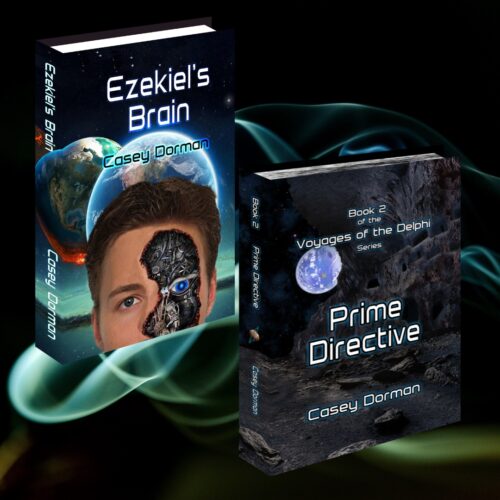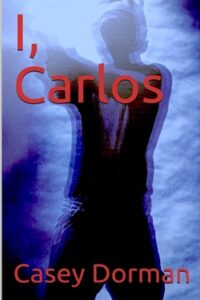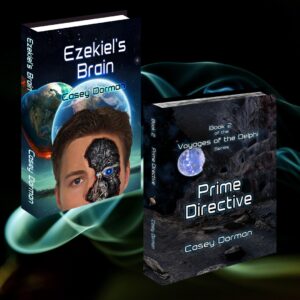Can Consciousness Be Created?
Casey Dorman
Developers of artificial intelligence (AI) are divided on the question of whether or not an AI can become conscious. The question is complicated by the fact that, among both the AI and scientific communities, there is no agreed upon definition of consciousness. In fact, most definitions either focus on mechanisms and brain regions involved in and perhaps required for consciousness to occur, with consciousness measured grossly as wakefulness or attention to elements of the environment, or to some broad concept of consciousness such as quantum effects, perhaps related to the structure of brain cells. Some proponents of the latter type of theory have proposed that the entire universe, as we know it, is a creation of one vast consciousness, of which our own is but one element.
Some theories of consciousness, particularly those that rely on cellular processes and those that posit that the entire universe, including our own experiences, is a product of a vast consciousness, preclude an artificially intelligent, non-organic machine from being conscious. Other theories, which are more mechanistic and hypothesize that consciousness is a product of the relationship between brain-based components of an evolved system, allow for a working non-organic copy of such a system to produce consciousness. Thus, some advocates of these theories say that an AI could, indeed, become consciousness if its components reproduced a consciousness-creating system.
My own reading of the scientific literature on consciousness puts me firmly in the mechanistic, consciousness-as-a-brain-system camp. A 2023 article written by 19 prominent scholars in the fields of AI, neuroscience and philosophy surveyed cognitive mechanisms that research has suggested are indicators of mechanisms that are involved in producing consciousness in organic brains and concluded that, “there are no obvious technical barriers to building AI systems which satisfy these indicators (Butlin et al, 2023).
In my novels, I, Carlos, and those in the Voyages of the Delphi series, Ezekiel’s Brain and Prime Directive, I have used a software system installed in either an AI, or in the case of I, Carlos, on a computer chip inserted in the brain of a human, to produce conscious experience. This is, of course, a gross oversimplification necessary for the novels, but the concept is sound, if the conclusion of many current researchers and theoreticians is correct.
The possibility that consciousness can be created in an AI raises a number of issues. Consciousness in humans and presumably some other mammals, and perhaps birds or even octopuses, includes a sense of self, both as an agent of the organism’s actions, and also as an object of conscious reflection. We are all intimately connected to this experience, and it is our self in such a form that gives us a sense of who we are and about which we have a difficult time imagining it ending when we die. Many religions assume consciousness lives on in some form as one’s “soul,” even after death. We don’t have such difficulties thinking of a machine-based consciousness ending when a machine is destroyed or perhaps even when it is just without power.
Moral values apply to selves. Issues of innocence and guilt and free choice are issues that only make sense when we’re talking about a conscious, and in fact, self-conscious person. What about a conscious AI? Would it be “responsible” for its actions? Can we use terms such as good or bad to describe it when it carries out an action that harms or helps someone? And what about destroying it if it is conscious? If it were a person, destroying it might be labeled murder.
Over centuries of history, many humans have regarded their conscious selves as something created by a supreme being. To such a way of thinking, it seems like the height of arrogance to think that humans could, themselves, create something so special and in many people’s experiences, so closely tied to a supreme being. Some proponents of quantum effects as consciousness and the universal consciousness idea they derive from this theory equate such a universal consciousness with a supreme being. AI consciousness is difficult to accept if one has such a view.
AI consciousness, created by humans in a machine of their design, is a powerful science fiction concept, but the question for many is whether such an idea is simply fiction or whether it could become a reality. For now, the implications of the idea are left to science fiction writers to explore, and, in addition to such explorations being entertaining, they may prove to prepare us for a reality that is approaching in the not-to-distant future.
A computer chip takes over the consciousness of a martial arts expert and marksman, leading him to believe he is Carlos the Jackal, with a mandate to assassinate the President of the United States. Read this classic sci-fi thriller. Buy I, Carlos on Amazon. Click Here.
A scientist recreates his own brain inside an AI, while DARPA creates a superintelligent AI that ends up attacking the human race. Two hundred years later, the descendants of the DARPA AI have replaced humans and populated the entire Solar System and are reaching out into space, while Ezekiel, the AI with a human brain must decide if he will join them. Read the futuristic adventures the android Delphi crew as they explore the galaxy in search of life in the Voyages of the Delphi novels, Ezekiel’s Brain and Prime Directive. Buy on Amazon. Click Here.
References:
- Butlin, P., Long, R., Elmoznino, E., Bengio, Y., Birch, J., Constant, A., … & VanRullen, R. (2023). Consciousness in Artificial Intelligence: Insights from the Science of Consciousness. arXiv preprint arXiv:2308.08708.
Subscribe to Casey Dorman’s Newsletter. Click HERE







